Raphaëlle Mueller, Under the surface of a red lagoon: Unfolding the many layers of media materiality, 2016. Projet de recherche transdisciplinaire commencé dans le cadre du Master CCC, Head-Geneva, 2016, sous la direction de Gene Ray et Kodwo Eshun.
Œuvres
Under the surface of a red lagoon: Unfolding the many layers of media materiality 2016 - 2018
Raphaëlle Mueller
Under the surface of a red lagoon: Unfolding the many layers of media materiality, 2016
Vidéo, 57 sec, une seule espèce d’algue trouvée dans
le lac de déchets de bauxite pendant l’été 2016.
Videostill © Raphaëlle Mueller
Abstract (English)
With the acceptance of the idea of the Anthropocene (Capitalocene, Technocene, …), we now face the fact that anthropogenic-capitalist actions on nature are shaping a new form of aesthetic made up of pollution and toxicity. As an artist and researcher, I’m aiming to process this new era through the lens and perspective of a subjective inquiry, reflecting on the image/landscape itself as a participant in the political ontology of toxifying technologies. It concerns the intoxicated vibrant matter and its ecology, which ties the lithosphere, the biosphere and the technosphere. In order to articulate these scales and disciplines, I focus my case study on a visually loud, but epistemically silent red lake of dumped bauxite waste situated in Tulcea, a city on the Danube in Romania.
In the key moments of my research, I unfold and analyse hidden characteristics that are laying under the surface of an image, in particular, a series of my pictures taken on the site of the red lake in 2014. These moments open up with ecological, economical and political issues related to the aluminium industry and its by-product red mud through a narrative field based on my empirical experience. It is followed by an image/media theory question about representation, which is inextricably bound to ethics and the biopolitics of capitalism. I also share the experience of my latter fieldwork while unveiling the vocabulary and the development of the research. Then, empiricism is brought into a discursive space marked by the idea of an ontological shift of perspective, considering both aluminium and its related waste as a non-human agents and, in a broader sense, considering matter as a form of media. Some scholars, including Jane Benett, Donna Haraway, Anna Tsing, Susan Schuppli and other new materialists, are working to understand the points of view of nonhuman agents and include them in thinking contemporary urgencies. Hence, decentering the human allows a holistic awareness of what relies upon causes and effects. Thus, the call to operate continuums (non-binarity) or assemblages with a non-human perspective is a compelling strategy to decolonize modernism from our mindset. One of the goals of this work is to relink or remap the entanglements between the raw material (the bauxite rock), the politics of mining and refining (and its polluting consequences) with the many applications in our daily life, considering aluminium as one of the main colonizer of the twentiest and twentyfirst century, as well as oil. Hence, one of the purposes of this study is to describe and examine the possible agencies of toxic matter. Moreover, the approach I have used in this research aims to prove that the matter is a form of media. With this in mind, the image is opposed to knowledge whereas matter itself generates knowledge. In fact, it is a new status to the image as it is not a merely fixed representation or inert index, but a productive agent, able to produce its own ontological image as a kind of material witness.
Finally, this work tends to provide a possible solution, a strategy to activate my own artistic practice within a community of biohackers, scientists and people with ecological awareness. My research led me to a crucial self-critique of my main medium, photography, and stresses for alternative methods of artistic production, in a collaborative and cooperative way, for the developpement of non-destructive dynamic processes between humans and non-human agents. Hence, since the representational regime is falling in adressing political claims, my research aims to propose alternative ways of image-making that are non polluting dynamic processes and, furthermore, multispecies collaborations.
Raphaëlle Mueller
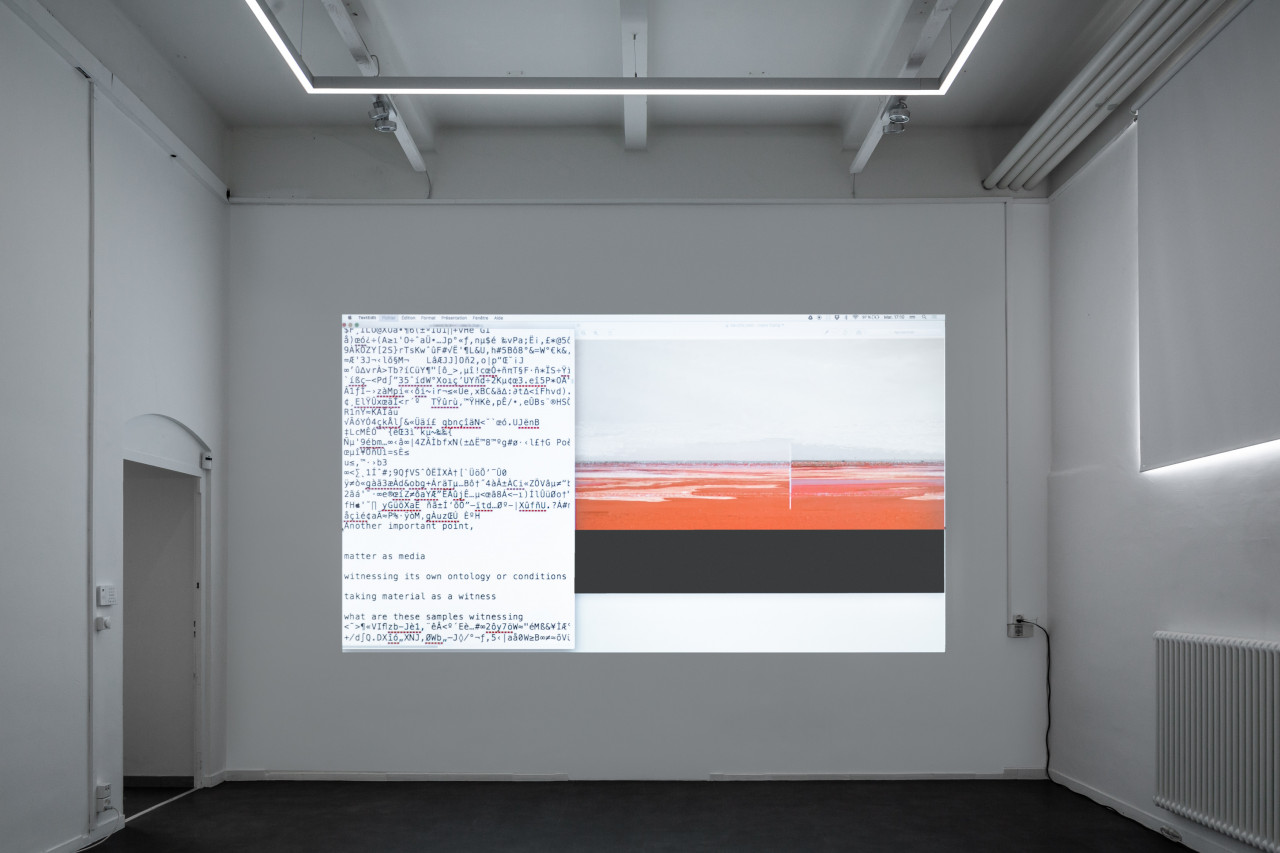
Raphaëlle Mueller
Under the surface of a red lagoon: Unfolding the many layers of media materiality, 2016
Vidéo projection, Live in Your Head, Shifting Baselines, Genève, Suisse
Photo © Raphaëlle Mueller
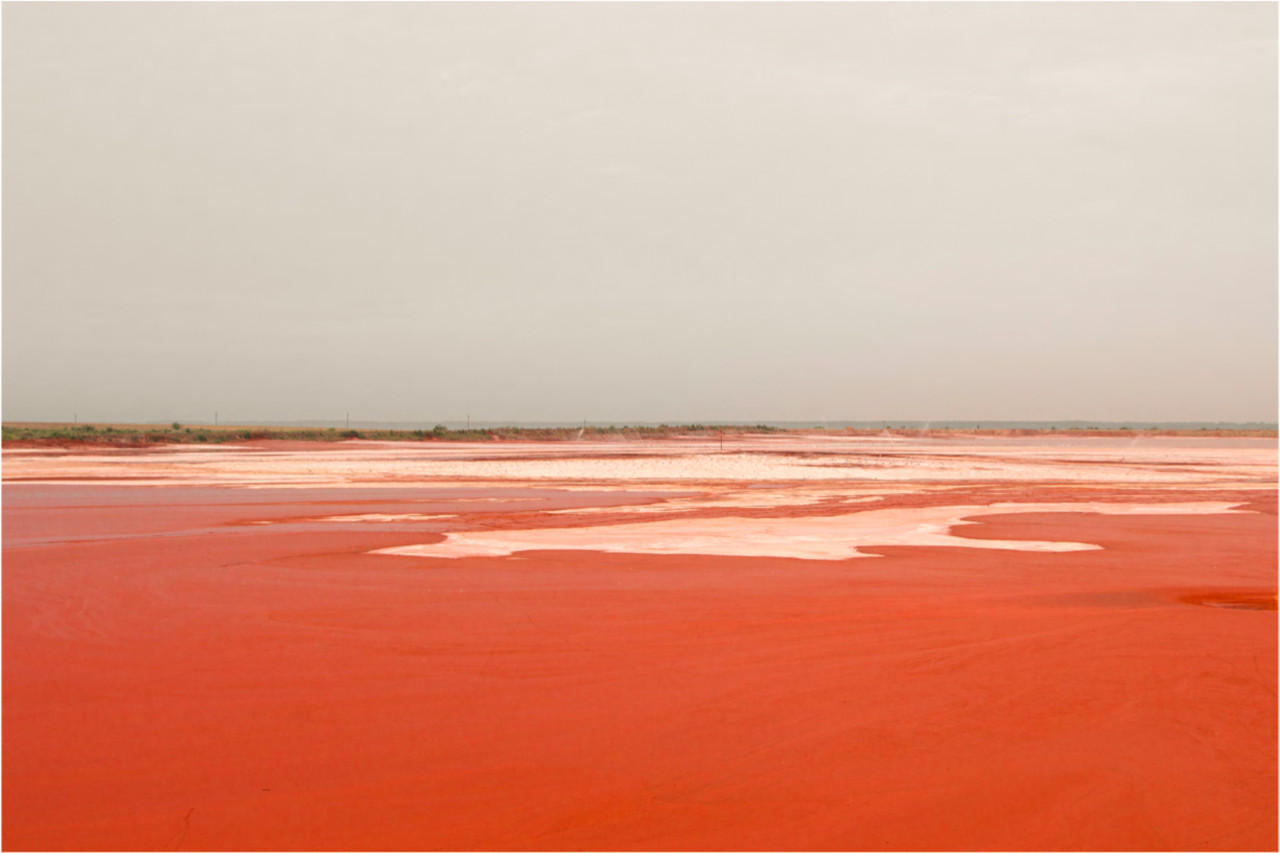
Raphaëlle Mueller
Under the surface of a red lagoon: Unfolding the many layers of media materiality, 2016
Photographie, lac de déchets de bauxite (50 ha) situé à Tulcea, Roumanie
Photo © Raphaëlle Mueller
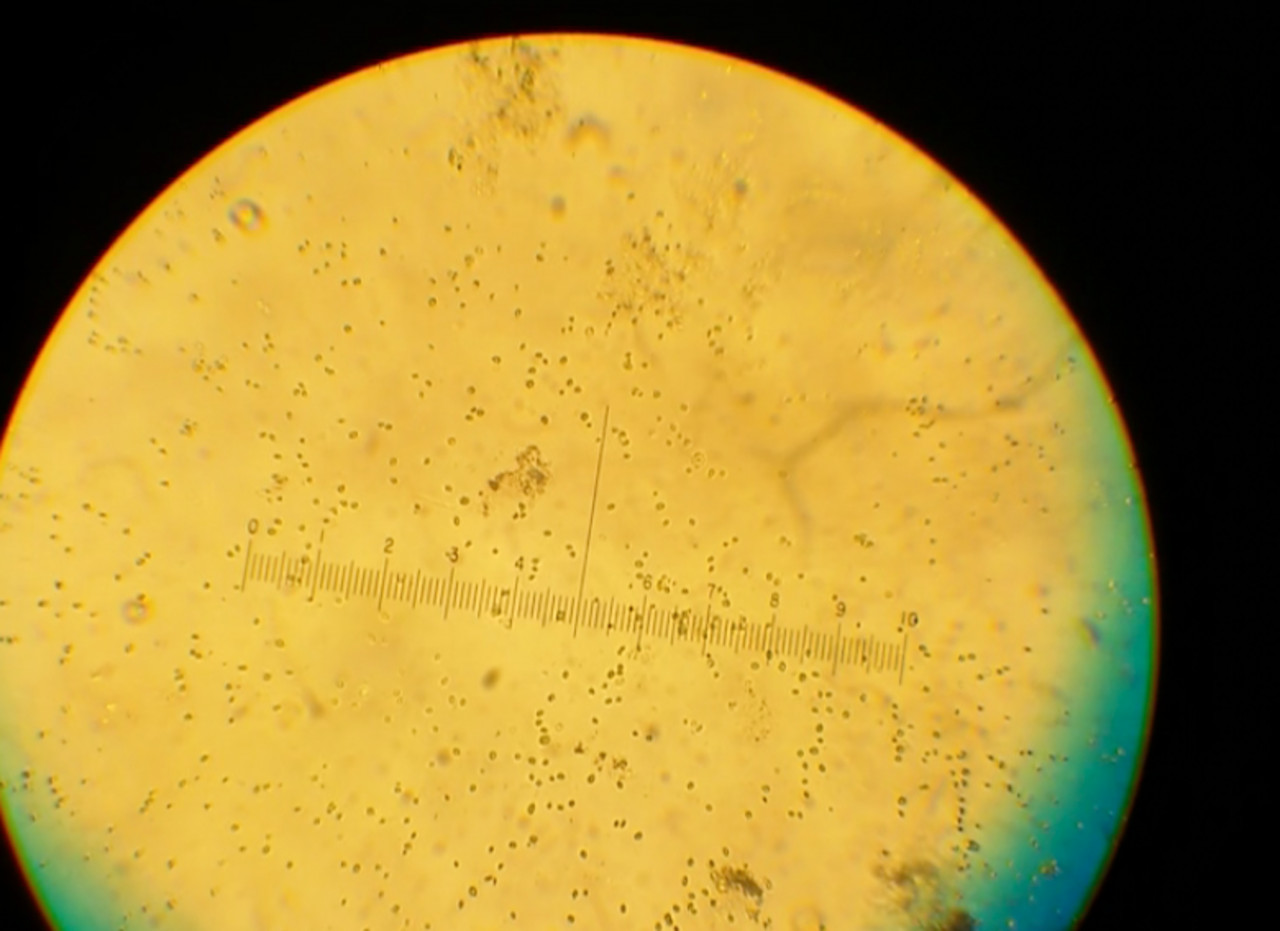
Raphaëlle Mueller
Under the surface of a red lagoon: Unfolding the many layers of media materiality, 2016
Vidéo, 57 sec, une seule espèce d’algue trouvée dans
le lac de déchets de bauxite pendant l’été 2016.
Videostill © Raphaëlle Mueller
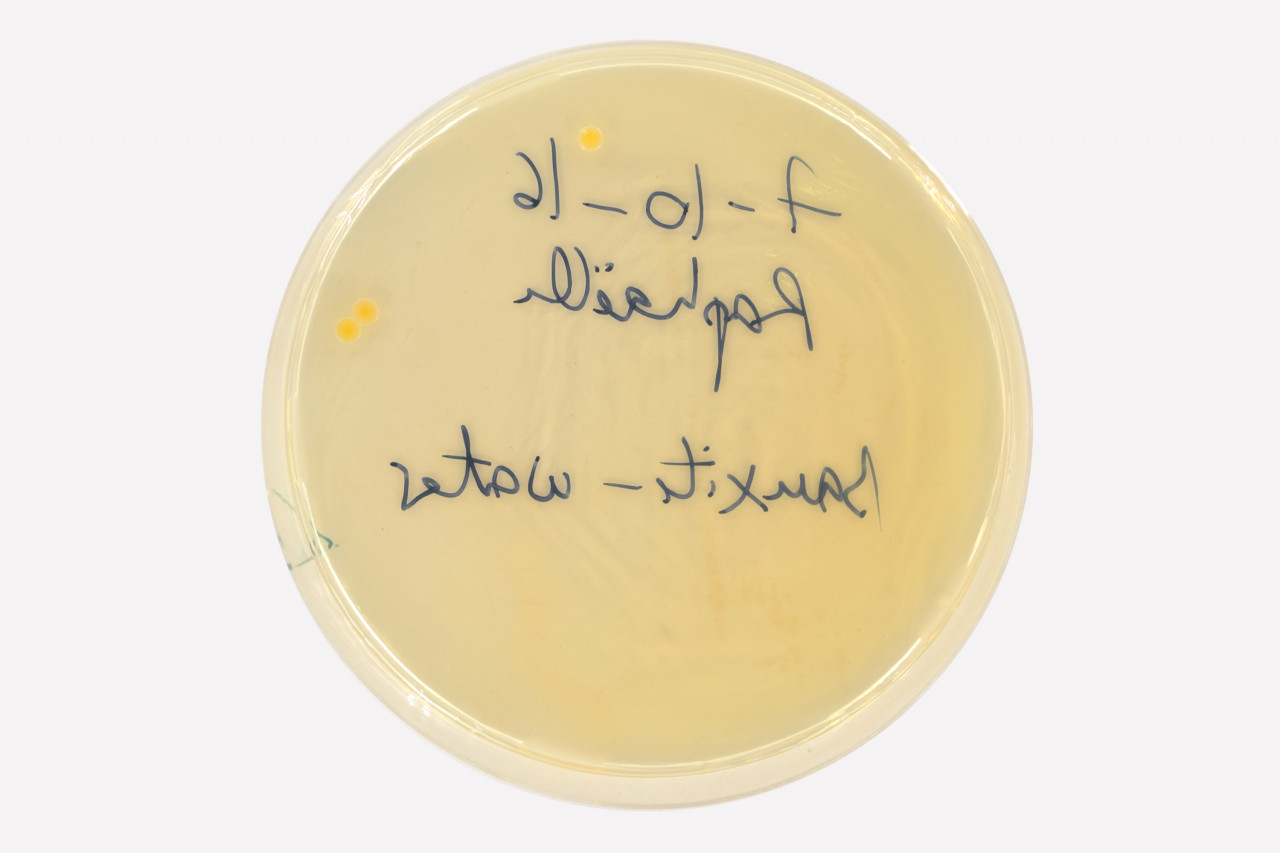
Raphaëlle Mueller
Under the surface of a red lagoon: Unfolding the many layers of media materiality, 2016
Microorganismes extrémophiles, échantillons en culture du lac rouge de résidus de bauxite, octobre 2016
Photo © Raphaëlle Mueller
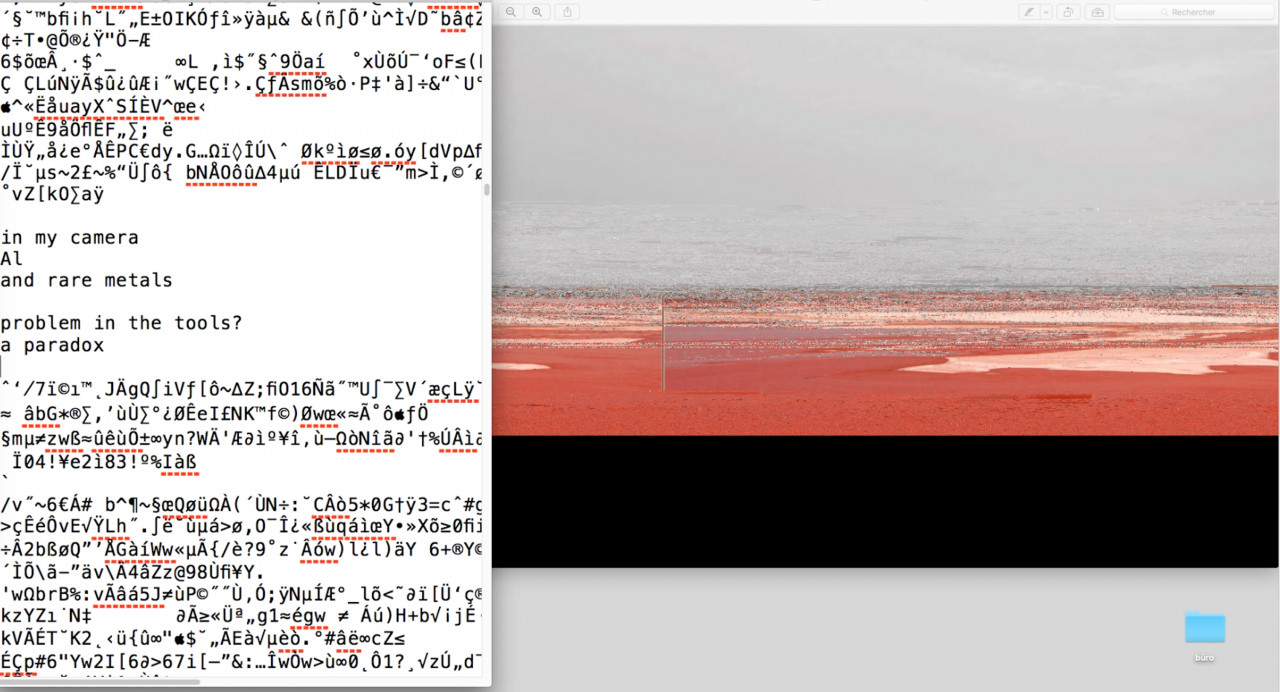
Raphaëlle Mueller
Under the surface of a red lagoon: Unfolding the many layers of media materiality, 2016
Vidéo projection, Live in Your Head, Shifting Baselines, Genève, Suisse
Photo © Raphaëlle Mueller
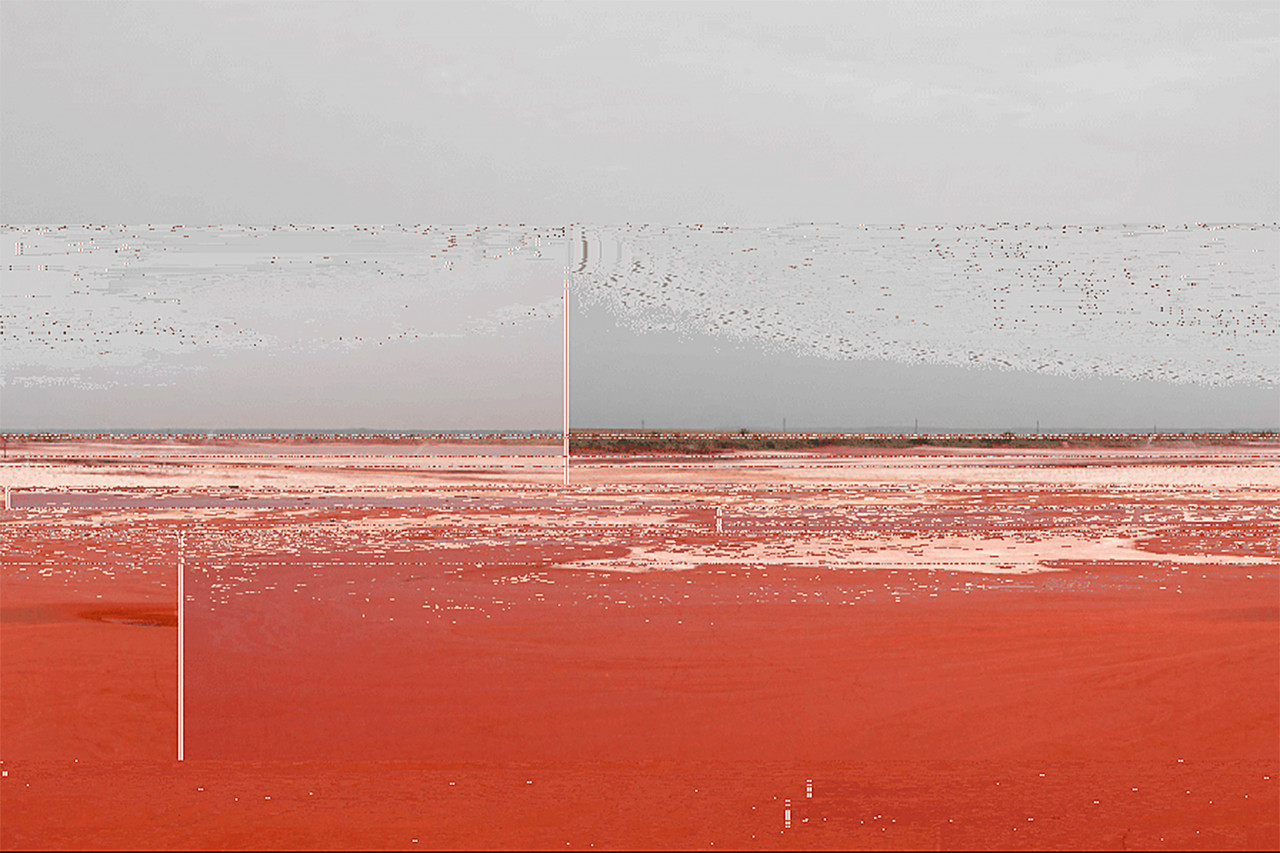
Raphaëlle Mueller
Under the surface of a red lagoon: Unfolding the many layers of media materiality, 2016
Recherche, Pixelhack, videostill
Videostill © Raphaëlle Mueller
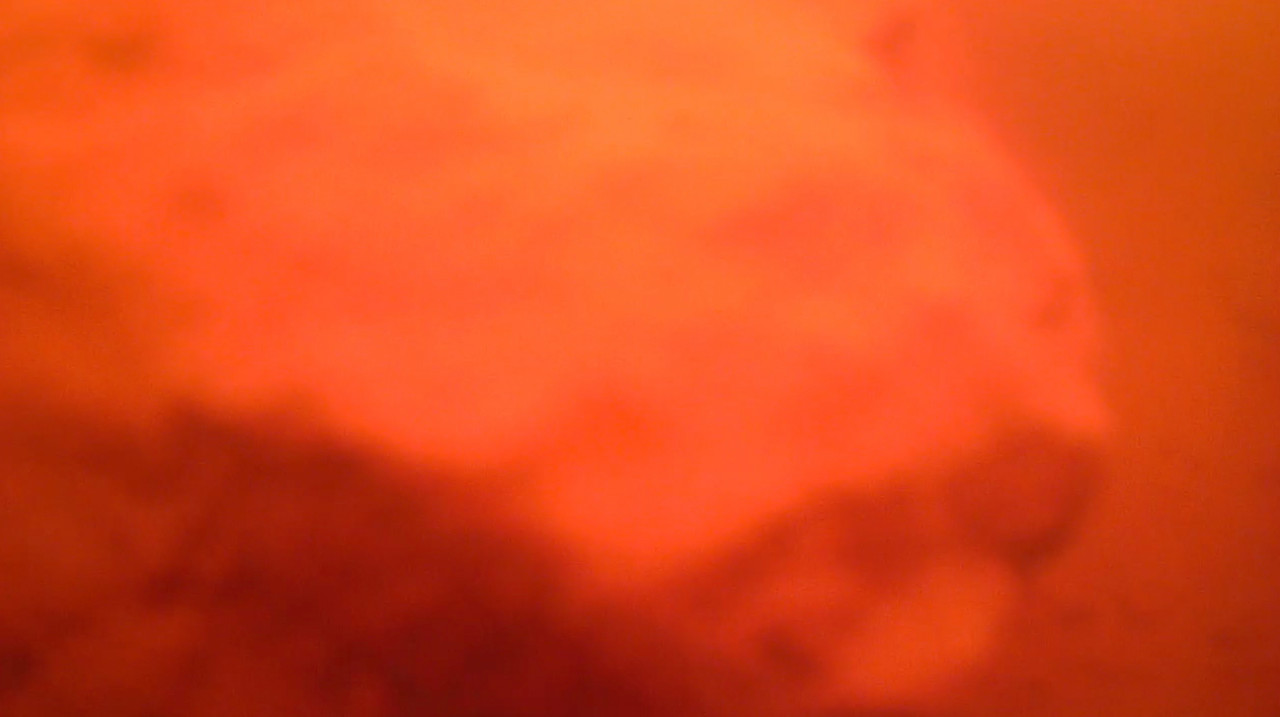
Under the surface of a red lagoon:
Unfolding the many layers of media materiality, 2016
Video loop, 8 min 10, videostill
Videostill © Raphaëlle Mueller

Raphaëlle Mueller
Under the surface of a red lagoon: Unfolding the many layers of media materiality, 2016
Vidéo projection, Live in Your Head, Shifting Baselines, Genève, Suisse
Photo © Raphaëlle Mueller
Pour en savoir plus, parcourez le mémoire de l’artiste consacré au sujet.

